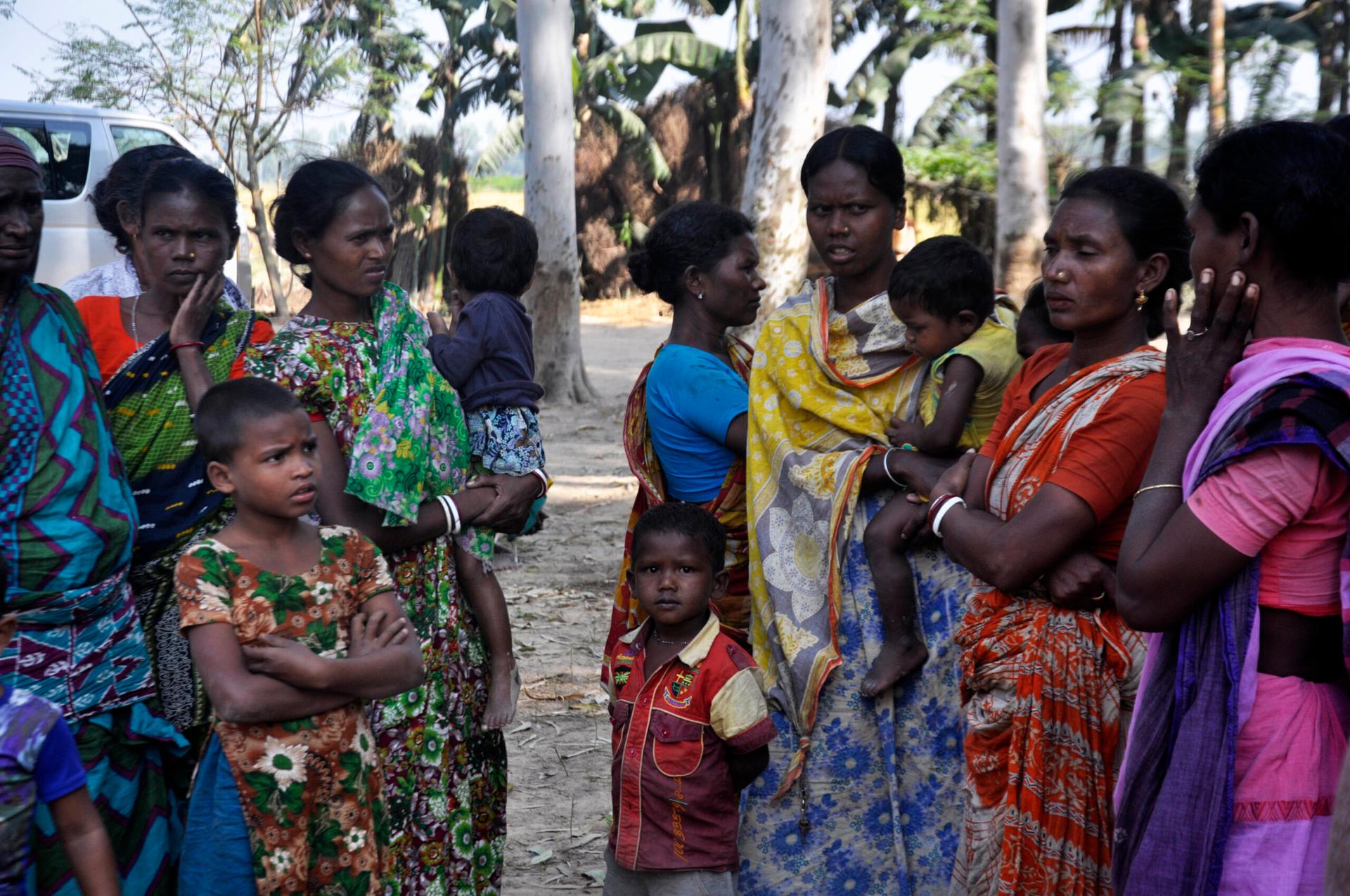DHAKA – Santal indigenous of Gaibandha district in northern Bangladesh were protesting on Santal killing Day on Thursday.
The Santals are one of the most ancient indigenous communities in Bangladesh. The 2022 census lists the Santal population at 129,049, but community leaders estimate the population to be much higher, possibly around 500,000. Around 99 percent Santal are Christian.
On November 6, more than 700 Santals and Bengalis – along with Christian activists – held a rally and protest in front of the district’s public library marking the ninth anniversary of a tragedy for the community.
On November 6, 2016, three Santal indigenous land rights activists were shot dead by the police in front of thousands of protesting Santal-Bengali people. At the same time, a horrific rampage was going on in which the houses of the Santals were set on fire and burned to ashes.
The attackers were close associates of the then National Parliament Member of Awami League. The three indigenous people killed were Shyamal Hembram, Mangal Mardi and Ramesh Tudu.
The Santal tribal people observe the day as “Santal Killing Day” every year.
The convener of the Land Retrieval Committee, Philemon Baskey, told Crux one of the signs that the Santal tribal people are oppressed and neglected in Bangladesh is that the murder has not been tried and their land has not been returned.
“We want justice for the murder of our three brothers, we want fair rights to our land and we want to live in Bangladesh with security and dignity and these are our rights,” Baskey said.
He said that they are still being threatened by various parties by threats in public and sent on mobile phones.
The dispute has been going on for a long time.
In 1956, on the pretext of establishing an industrial factory called Rangpur Sugar Mill, the then East Pakistan government took over their fertile agricultural land under the power of the East Pakistan Land Requisition Act.
In 1962, an agreement was signed between the then-government and the owners of the requisitioned land. One of the conditions of the agreement if the land ever stopped being used for sugarcane cultivation, it would be returned to the previous owners or their heirs.
The sugar mill stopped producing sugar in 2004. In this context, farmers from the Santal community started a movement demanding that the land be returned to them for agricultural cultivation as per the terms of the agreement.
However, they built temporary houses around the land and started living there; at the same time, they started cultivating agriculture on the land.
Shamsul Huda, executive director of the Association for Land Reform and Development (ALRD), which works on land rights in Bangladesh, said that the rights to the land should be given to the Santals.
“The police once opened fire indiscriminately to break up the resistance of the Santals. As a result, three Santal tribal leaders were killed that day. As a result of setting fire to the Santal houses, hundreds of Santal families, including women and children, spent their days in the open. Later, they started living in temporary houses made of straw, bamboo or other materials,” he said.
Historians say Santal indigenous are the earliest settlers in greater Bengal. Santal mainly belong to Austro-Asiatic group of pre-Aryan settlers. Santals are deprived of state rights and privileges in many aspects, with a historical legacy of isolation and clashes.
As the Santals live isolated from the mainland people, proper attention has never been given to them. Rather they were tortured and oppressed both by colonial and post-colonial rulers, which led them to launch resistance.
“We, not just Santals, want justice for everyone,” said Holy Cross Father Liton Hubert Gomes, secretary of Justice and Peace commission of Catholic Bishops’ Conference of Bangladesh.
“It is very disappointing that even after nine years, the Santals are not getting justice,” he told Crux.
“We hope that the Bangladesh government will quickly prosecute this murder and return the land rights of the Santal indigenous peoples.” Gomes said.













